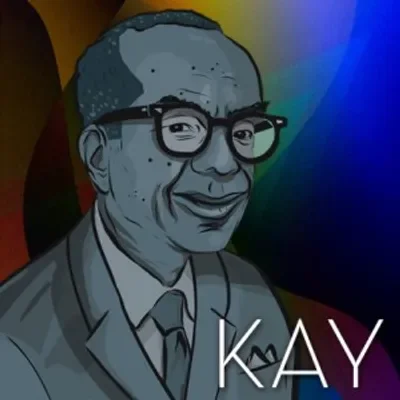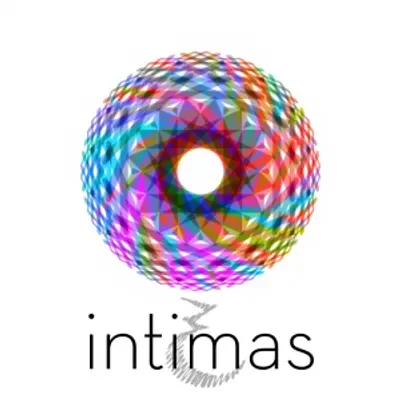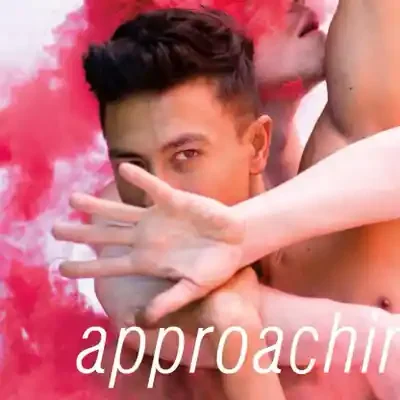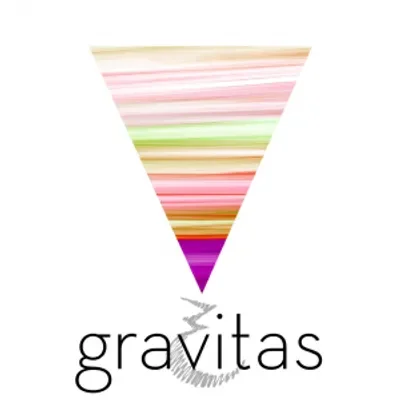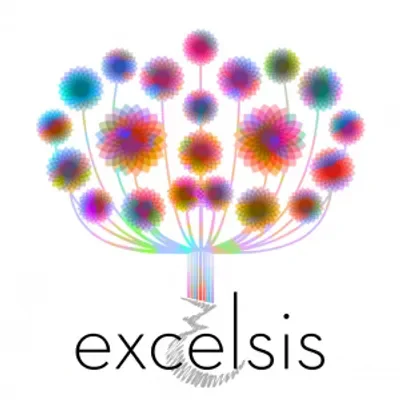Season 24 | 2017
KAY: Ulysses Kay centennial
Friday | 6 January 2017 | 8pm
St Stephen’s Episcopal Church
4805 Northeast 45th Street | Seattle
Saturday | 7 January 2017 | 8pm
Holy Rosary Catholic Church
4139 42nd Avenue Southwest | West Seattle
Sunday | 8 January 2017 | 7pm
Christ Episcopal Church
310 North K Street | Tacoma
For the first concert of its 24th season, The Esoterics celebrated the centennial of African-American composer, conductor, and professor, Ulysses Kay. Born in Tucson, Kay began to play the piano at age six, upon the encouragement of his uncle, Joe “King” Oliver (a jazz cornet player who was also the mentor of Louis Armstrong). Building on the rich musical heritage of his youth, Kay studied at the University of Arizona, Eastman, Yale, and Columbia, served in the Navy Band during World War II, and was awarded prizes from the National Institute of Arts and Letters, a Fulbright Fellowship, and two Rome Prizes.
In 1958, Kay participated in the first cultural exchange between the US and the Soviet Union, and between 1965 and his retirement, Kay served on the faculties of Boston University, the University of California, the City University of New York, and Macalester College. Among his nearly 150 compositions for film, television, and the concert hall (for orchestra, chamber ensemble, band, piano, and voice), Kay composed five operas, including one about the legendary abolitionist Frederick Douglass.
Kay’s music is as fascinating as his inspirations are varied, yet avoids all obvious references to his ethnicity. His choral oeuvre includes settings of Psalms, revolutionary texts, Christmas carols, wartime poems, verses by William Shakespeare, Abraham Lincoln, Sara Teasdale, Paul Laurence Dunbar, as well as folksongs, fiddle-tunes, and sea shanties. Ulysses Kay is one of the most under-sung choral composers of the American Neoclassic era, and this concert was the first time that many of these works will have ever been performed.
The Esoterics was honored to have been joined for this concert series by two of Kay's daughters: Virginia and Hillary.
CONCERT REPERTOIRE: (all composed by Ulysses Kay)
As Joseph was a-walking (1943)
Christmas carol (1943)
Come away, come away, death (1944)
Dedication (1946)
Flowers in the valley (1961)
A Lincoln letter (1953)
A new song: Three Psalms (1955)
Sing unto the Lord
Like as a father
O praise the Lord
Two Dunbar lyrics (1965)
A starry night
A madrigal
Two folksongs settings (1975)
Sally Ann
Blow, ye winds in the morning
Two madrigals (1954-1956)
What's in a name? (1956)
How stands the glass around? (1954)
A wreath for waits (1956)
Noel
Lully, lullay
Welcome yule
INTIMAS: Cultivating community
Sunday | 2 April 2017 | 3pm
St John's Episcopal Church
114 20th Avenue Southeast | Olympia
Friday | 7 April 2017 | 8pm
Holy Rosary Catholic Church
4139 42nd Avenue Southwest | West Seattle
Saturday | 8 April 2017 | 8pm
St Stephen’s Episcopal Church
4805 Northeast 45th Street | Seattle
Sunday | 9 April 2017 | 7pm
Christ Episcopal Church
310 North K Street | Tacoma
As we have struggled to understand and overcome the challenges of living in a divided and divisive world, the concept of community has been more important now than ever. In this time of conflict and dissent, The Esoterics offered a program of three new choral works on the theme of community: to inspire reflection and respect, creation and renewal, inclusion and support. The concert pieces included the West Coast premiere of Messages to myself by Christopher Theofanidis, the reprise of The wheel of time, the dance by Pulitzer Prize-winning composer Aaron Jay Kernis, and Banks’ own 2015 composition, This delicate universe.
In the four movements of his 2007 song cycle, Messages to myself, Christopher Theofanidis has given voice to verses by Rumi, Whitman, Yeats, and the contemporary poet Amy Beth Kirsten. These words inspired Theofanidis to create a series of meditations on various aspects of community: from finding one’s own voice and hearing the voice of others, to the benefits of critical thinking, loving one’s neighbor, and the interdependence of our collective humanity.
In The wheel of time, the dance (2014), Aaron Jay Kernis chose to set four poems by the environmental activist and Kentucky farmer Wendell Berry. After departing the initial bustle of the city, Berry’s verses pay homage to the cycles found in time and nature, life and love, with images of light and darkness, field and forest, land and air, water and weather. For Kernis, the wheel of time allows for “the sweet enclosure of the song,” and inspires an eternal dance with everyone – our families, friends, neighbors, and departed ancestors. Through this dance, we gain an emotional connection to our own geography and genealogy, and even after losing ourselves, we are still able to find our own way home.
This program concluded with Eric Banks’ a cappella symphony, This delicate universe (2015), winner of the 2010 Dale Warland Singers Commission Award from Chorus America and the American Composers Forum. Banks’ 32-minute works sets five poems by the Greek-Egyptian poet Constantine Cavafy that explore five different “universes,” or meditations on connectedness: the sharing of one’s art, the familiar comfort of one’s neighborhood, the inextricable link between place and memory, the most intimate interaction between lovers, and the mystical, spiritual embrace of the great unknown, in “the sacred silence of creation.”
CONCERT REPERTOIRE:
Messages to myself (2007)
Have you reckoned...?
God picks up the reed-flute world...
November prayer
When you are old and grey...
by Christopher Theofanidis
This delicate universe (2015)
I have brought to art
In this place
The morning sea
An epic in the heart
Beside an open window
by Eric Banks
The wheel of time, the dance (2014)
Circles of our lives
Returning
The wheel
In rain
by Aaron Jay Kernis
EKSTASIS: Approaching ecstasy
Friday | 2 June 2017 | 8pm
Cornish Playhouse at Seattle Center
201 Mercer Street | Seattle
Saturday | 3 June 2017 | 8pm
Cornish Playhouse at Seattle Center
201 Mercer Street | Seattle
Friday | 9 June 2017 | 8pm
Cornish Playhouse at Seattle Center
201 Mercer Street | Seattle
Saturday | 10 June 2017 | 8pm
Cornish Playhouse at Seattle Center
201 Mercer Street | Seattle
In this highly-anticipated reprisal with Whim W’Him, The Esoterics presented Approaching ecstasy, a concert-length dance collaboration based on the life and poetry of the Alexandrian poet Constantine Cavafy. This “tryst ballet,” which was composed and conducted by Founding Director Eric Banks, was sung by The Esoterics, accompanied by the Skyros String Quartet and harpist Melissa Achten Klausner. Approaching ecstasy was choreographed by Whim W’Him’s founding director Olivier Wevers, and featured seven dancers from his company, as well as Casey Curran’s set design on the stage of the Cornish Playhouse at Seattle Center.
The seeds for this collaboration were planted in the summer of 2008, when Banks traveled to Egypt, and while in Alexandria, visited the home of his favorite poet, Constantine Cavafy (1863-1933). Upon his return to Seattle, Eric met Olivier (who was then still dancing at Pacific Northwest Ballet, before he founded Whim W’Him), and shared a number of Cavafy’s poems with him. Cavafy’s work appealed to both creators, and inspired them to create this collaborative piece around the life and work of the poet.
In Approaching ecstasy, Banks has set eighteen of Cavafy’s poems – in both the original Greek, and in his own English translation. These poems describe Cavafy’s secret life as a gay man living in Egypt a century ago. The poems that Banks chose are vivid portraits of Cavafy’s lovers as well as his friends, “expressions of fear, hope, remembered love, and excruciating beauty.” Cavafy’s verses are clandestine, courageous, intensely intimate, and inspire hope for the openness of a future society. Wevers’ choreography will interpret the sensuality and sincerity of the poet’s desire, as well as express the frustration, danger, and oppression that Cavafy must have experienced in his daily life.
The Esoterics sang in alternating Greek and English, with both instruments and a cappella, in ensembles that range from a quartet of singers to the entire choral complement. Banks’ score incorporated North African musical influences (including Egyptian maqamat and muwashahat – scales and rhythmic patterns) in juxtaposition with Western musical elements – to represent the cultural confluences of Alexandria at the turn of the last century.
CONCERT REPERTOIRE:
Approaching ecstasy (2012/2017)
Prologue
Candles
With the touch of this hands
Faces
In the vestibule
Visions
By chance
Senses
Out of their bed
Walls
Interlude
Windows
As if he never existed
Bodies
Into the shining night
Desires
Down the street
Obstacles
On the sofa
Shadows
Epilogue
by Eric Banks
GRAVITAS: Investigating gravity
Friday | 6 October 2017 | 8pm
St Stephen’s Episcopal Church
4805 Northeast 45th Street | Seattle
Saturday | 7 October 2017 | 8pm
Holy Rosary Catholic Church
4139 42nd Avenue Southwest | West Seattle
Sunday | 8 October 2017 | 7pm
Christ Episcopal Church
310 North K Street | Tacoma
With its origins in the ancient Latin word for “weight” or “heaviness,” our modern definition of gravity has come to describe the force that draws us downward, keeps us grounded, and embraces an outlook that is sober, serious, severe, and of imminent consequence. In this concert, The Esoterics offered a concert of new choral music on this theme, GRAVITAS: to remind us and inspire us toward greater sincerity, solemnity, depth, and community thoughtfulness.
This autumn concert program featured two choral cycles by the New York composer Robert Paterson. Rob’s The essence of gravity is a four-movement onomatopoeic exploration of love and war, orbits and tides, from the violence of “gravity bombs” to the serenity of outer space. Paterson’s Eternal reflections is a cycle of heartfelt poems by Czeslaw Milosz, Paul Laurence Dunbar, and Mary Elizabeth Frye. The ensemble also reprised Steven Stucky’s madrigal Gravity’s dream, a whimsical setting of a poem by the composer’s longtime friend, Kate Light.
The centerpiece of GRAVITAS was the world premieres by the three winners of last year’s POLYPHONOS competition: Conrad Asman (from Cape Town, South Africa), Daniel Sabzghabaei (from Ithaca via Baltimore), and Vahram Sarkissian (from Montreal via Yerevan, Armenia). In My eyes are always hungry, Asman set verses by Audre Lorde written in memory of Emmett Till, a black youth whose 1955 murder is often considered “the hate crime that changed America.” In The blue booby, Sabzghabaei has set a poem by James Tate that describes a day in the life of the Galapagos birds, and his vivid score extends Tate’s own poetic gravitas. In Mheri dur [The door of Mher], Sarkissian recounts a portion of the Armenian Epic of Sassoon, in which a warrior’s own guilt impedes him from crossing the threshold of his self-imposed imprisonment.
CONCERT REPERTOIRE:
The blue booby (2017)
world premiere commission
by Daniel Sabzghabaei
The essence of gravity (2005)
Echoes of war
Love and kisses
Infinite oceans
Machines
by Robert Paterson
Eternal reflections (2009)
A song on the end of the world
Life's tragedy
Do not stand at my grave and weep
by Robert Paterson
Mheri dur [The door of Mher] (2017)
world premiere commission
by Vahram Sarkissian
Gravity's dream (2009)
by Steven Stucky
My eyes are always hungry (2017)
world premiere commission
by Conrad Asman
EXCELSIS: Contemplating extremity
Friday | 1 December 2017 | 8pm
St Stephen’s Episcopal Church
4805 Northeast 45th Street | Seattle
Saturday | 2 December 2017 | 8pm
Holy Rosary Catholic Church
4139 42nd Avenue Southwest | West Seattle
Sunday | 3 December 2017 | 7pm
Christ Episcopal Church
310 North K Street | Tacoma
In the final concert of our 24th season, The Esoterics cast our choral gaze upward, to consider the forces that propel us to greater heights of consciousness. For this program, we welcome the transforming embrace of the celestial feminine in the songs of EXCELSIS.
The centerpiece of this program was To touch the sky by the Pulitzer Prize-winning composer Kevin Puts. This nine-movement compendium of celestial feminine poetry includes texts by Marie Howe, Mirabai, Mother Teresa of Calcutta, Amy Lowell, Emily Bronte, Edna St Vincent Millay, Christina Rossetti, Sappho, and Hildegard of Bingen. The group also performed Puts’ If I were a swan, a setting of a poem by Fleda Brown, as well as Paul John Rudoi’s Spheres of influence, setting poems about comets and galaxies by Tim Togeas and Sara Dailey.
Also for this program, the ensemble was excited to welcome two composers from Philadelphia, who have both written works that received their world premieres in EXCELSIS. Kala Pierson’s Flung open, setting a poem of her own creation, was composed earlier this year on a residency at the Bloedel Reserve on Bainbridge Island; and Andrea Clearfield’s Khandroma set a poem by the Dartmouth anthropologist and translator Sienna Craig, that recounted the legend of the Tibetan ‘dakini,’ the ancient Buddhist spirits that dance across the sky.
CONCERT REPERTOIRE:
Flung open (2017)
world premiere commission
by Kala Pierson
If I were a swan (2012)
by Kevin Puts
Khandroma (2017)
world premiere commission
by Andrea Clearfield
Spheres of influence (2014)
Comet
You carry oceans within
by Paul John Rudoi
To touch the sky (2011)
Annunciation (Magnificat)
Unbreakable
The fruit of silence
Falling snow
At castle wood
Epitaph
Who has seen the wind?
With my two arms
Most noble evergreen
by Kevin Puts
